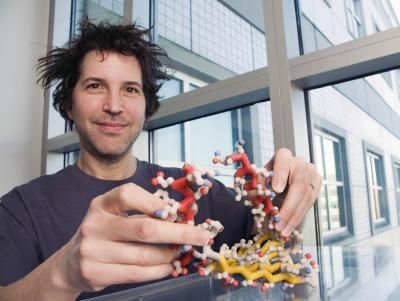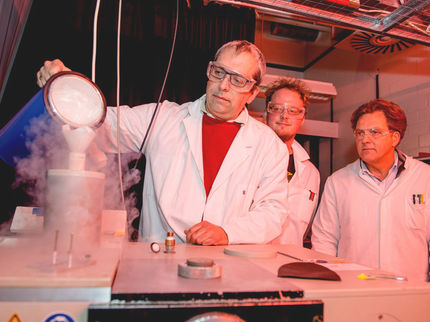High throughput phenotyping of uropathogenic E. coli isolates with Fourier transform infrared spectroscopy
UK scientists have designed a high throughput method to determine the phenotypes of the different Escherichia coli strains that cause urinary tract infections. The method couples bacterial growth requirements to Fourier transform infrared spectroscopy. The majority of urinary tract infections are caused by E. coli, but there are a number of different strains. Determining which strain is causing a particular infection usually requires culturing the sample, and this can take time, delaying treatment. The UK team’s method of micro-culturing bacteria from low volumes is rapid, less labour intensive and can handle 200 samples simultaneously under identical growth conditions – conditions necessary for whole organism fingerprinting.
Most read news
Original publication
Organizations
Other news from the department science

Get the life science industry in your inbox
By submitting this form you agree that LUMITOS AG will send you the newsletter(s) selected above by email. Your data will not be passed on to third parties. Your data will be stored and processed in accordance with our data protection regulations. LUMITOS may contact you by email for the purpose of advertising or market and opinion surveys. You can revoke your consent at any time without giving reasons to LUMITOS AG, Ernst-Augustin-Str. 2, 12489 Berlin, Germany or by e-mail at revoke@lumitos.com with effect for the future. In addition, each email contains a link to unsubscribe from the corresponding newsletter.
Most read news
More news from our other portals
See the theme worlds for related content
Topic World Spectroscopy
Investigation with spectroscopy gives us unique insights into the composition and structure of materials. From UV-Vis spectroscopy to infrared and Raman spectroscopy to fluorescence and atomic absorption spectroscopy, spectroscopy offers us a wide range of analytical techniques to precisely characterize substances. Immerse yourself in the fascinating world of spectroscopy!

Topic World Spectroscopy
Investigation with spectroscopy gives us unique insights into the composition and structure of materials. From UV-Vis spectroscopy to infrared and Raman spectroscopy to fluorescence and atomic absorption spectroscopy, spectroscopy offers us a wide range of analytical techniques to precisely characterize substances. Immerse yourself in the fascinating world of spectroscopy!
Last viewed contents
Sex_linkage
Antibiotic_resistance
Muller's_morphs






















































